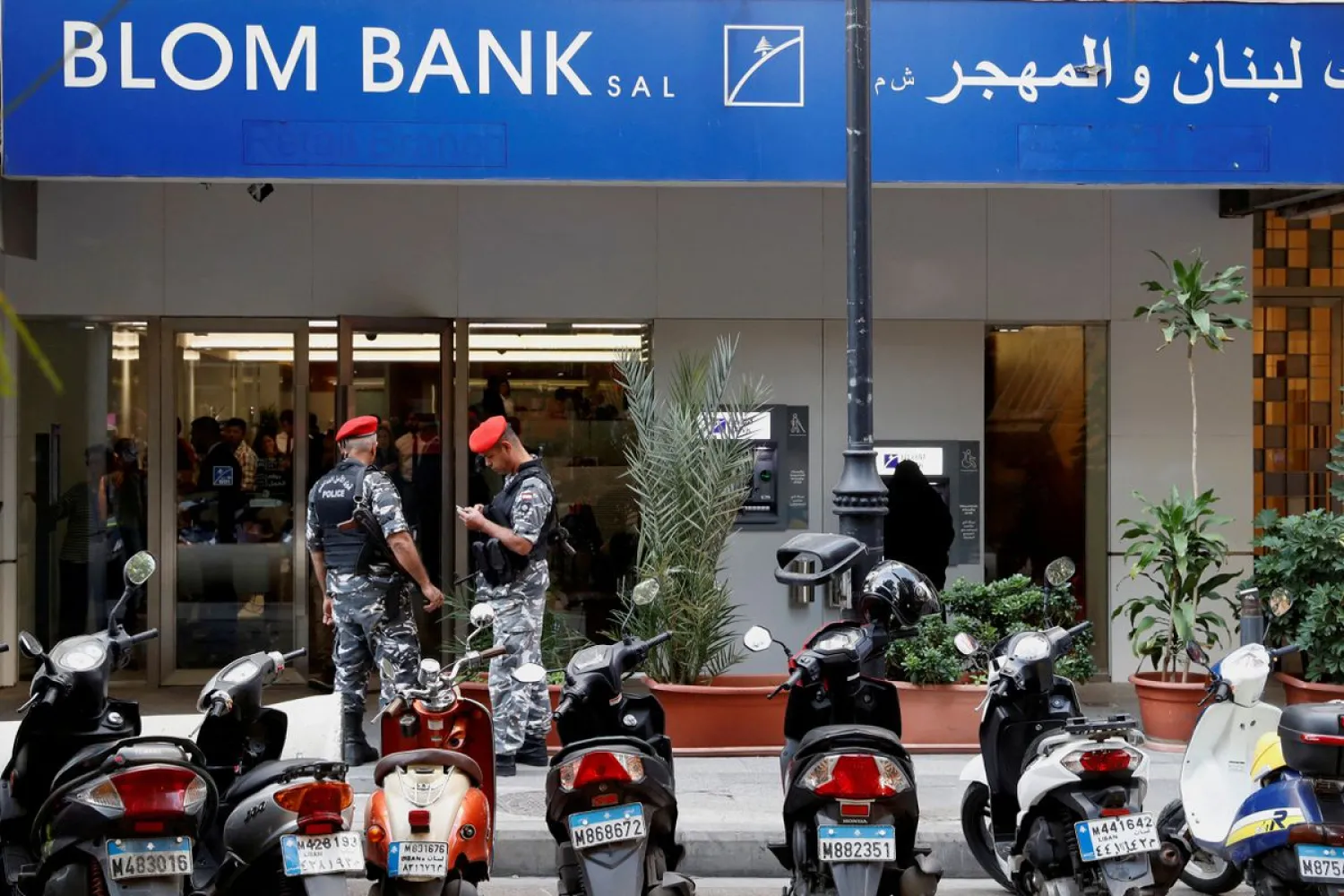A Lebanese prosecutor on Thursday issued travel bans against the heads of the boards of five Lebanese banks, the prosecutor told Reuters.
Ghada Aoun issued the bans against Salim Sfeir of Bank of Beirut, Samir Hanna of Bank Audi, Antoun Sehnaoui of SGBL, Saad Azhari of Blom Bank, and Raya Hassan of Bankmed.
The deputy prime minister said Wednesday that a hole in Lebanon's financial system estimated at $69 billion in September is expected to grow to $73 billion, and losses in the central bank reserve will increase while the country's financial is not addressed.
Saade Chami also said the state's contribution to plugging the hole would be "limited" to ensure public debt sustainability, while a depositor contribution was inevitable, in reference to how the losses would be distributed in a financial recovery plan which the government has yet to agree.
Chami made the comments in remarks to an economic council on Wednesday, a copy of which he sent to Reuters.
Lebanon has been mired in a devastating economic crisis since 2019, when the financial system collapsed under the weight of decades of state corruption, waste and mismanagement, paralyzing the banking system.
Despite soaring poverty, Beirut has yet to come up with a financial recovery plan addressing the losses, or other steps seen as vital to plotting a path out of the crisis and making progress towards an IMF deal.
Agreeing how the losses should be distributed between the state, the banking sector and depositors is seen as one of the toughest issues: Prime Minister Najib Mikati last month called the recovery plan a "Kamikaze operation".
Chami said the government and IMF had agreed on the need to protect small depositors, but had not yet agreed on the ceiling for defining a small depositor. There were "great difficulties" in returning foreign currency deposits in full, he said.
"The contribution of the state (in covering) the losses in the financial sector will be limited due to the necessity of ensuring public debt sustainability, likewise with the contribution of the central bank," Chami said.
Even if commercial banks lost all their capital of $12 billion, Chami said there must be a depositor contribution, and there were "numerous formats" for compensating depositors.
These included issuing government bonds, swapping deposits for bank shares, and the possibility of establishing a fund to manage state assets with part of the proceeds paid to depositors.
A draft plan seen by Reuters earlier this year proposed turning the bulk of $104 billion of hard currency deposits into local currency, with the financial hole covered mostly by depositor contributions.









